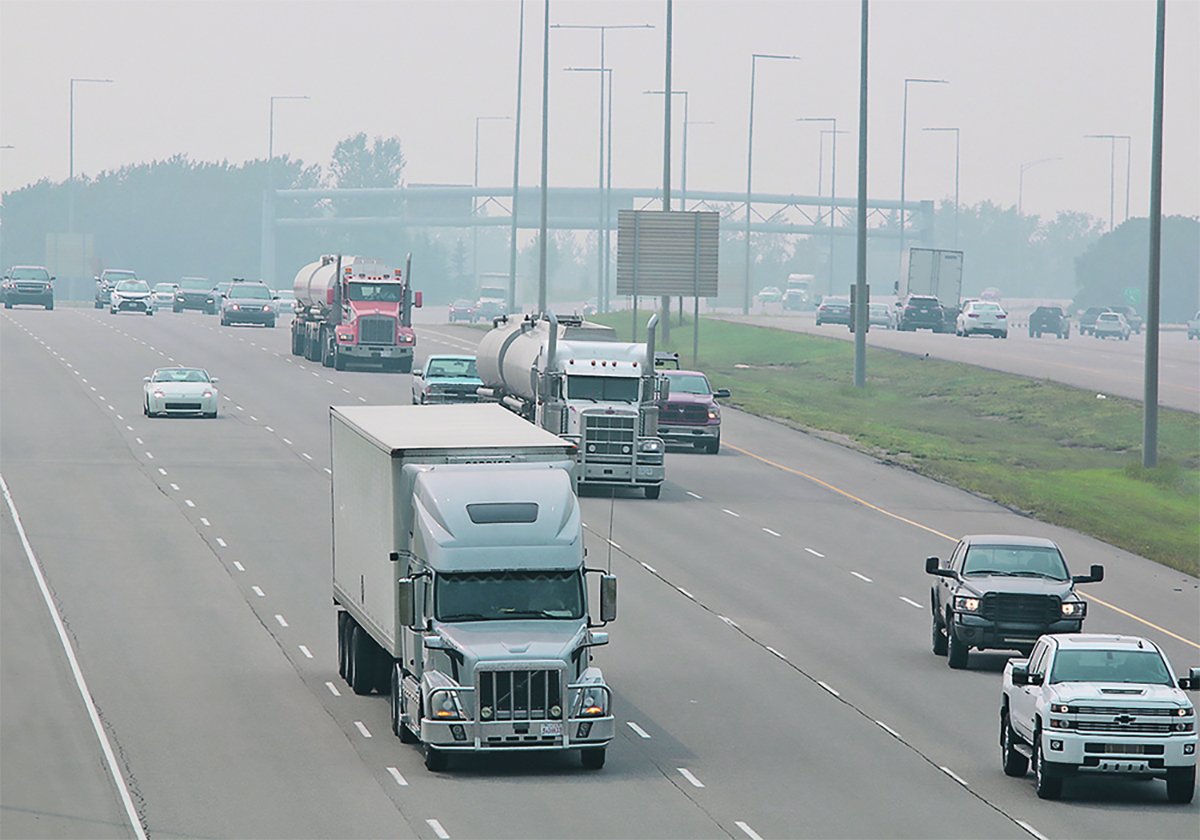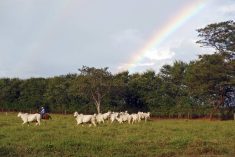DAPP, Alta. – On Aug. 2, Luke Seatter looked at Jessica van Dijken, standing at the edge of the Pembina River, and repeated, “for better, for worse, for richer, for poorer.”
They seem fitting words for a fourth generation farmer. The ups and downs of farming and marriage are no strangers to Triple Creek Farm. Luke’s great-grandfather John Seatter homesteaded the farm in 1907 and three generations have lived and loved there since.
When Luke’s grandparents, Bill and Betty Seatter, vowed those familiar words to each other on Valentine’s Day 1945, they knew what they were talking about. They grew up through the depression years and the Second World War wouldn’t end for another few months. A simple ceremony in the unpainted church, a home-cooked meal of mutton and potatoes at Betty’s parents, and they were off in Bill’s Model A Ford to their little shanty home.
Read Also

Alberta cracks down on trucking industry
Alberta transportation industry receives numerous sanctions and suspensions after crackdown investigation resulting from numerous bridge strikes and concerned calls and letters from concerned citizens
Back then, 40 percent of the population in Canada lived on farms, compared to two percent now. Those that had land could at least eat. It was difficult to get any other jobs. But “if you were in love, you could get a piece of land, build a shack and you had a home,” Bill said.
They saw the transition of farming from horses to tractors. They watched farms evolve into large corporations from small operations where almost everyone had a few cows, pigs, chickens and a big garden. But what never changed was the pride in seeding and harvesting a crop.
It was that tie to the land that brought his son, Richard, and wife, Valerie, back to the farm in 1978.
Those were the years when farmers were making money, shortly before interest rates would skyrocket to the high teens and many would go bankrupt. They experienced the destruction of grain elevators and the devastation of BSE. But there were also prosperous years, growing the farm to 2,800 acres and a sizable cow-calf operation.
Where the importance of written business goals is stressed today, there were also life goals. At a succession planning workshop Richard said, “if you put the future of the farm first, you may end up losing both the farm and the family.”
Having Luke join Richard in farming makes it challenging again. Luke brings new perspective and ideas to the business.
“The ups and downs don’t scare me at all,” said Jessica. She grew up on a farm, has always helped with the chores. She’ll be starting her first job as a schoolteacher this fall, as Luke finishes agriculture studies at the University of Alberta.
Luke believes that food and arable land will become an increasingly valuable commodity. But he added, “farming is only secondary.” Primary is family and marriage.
















